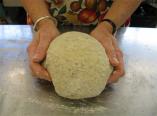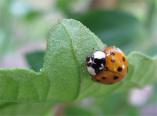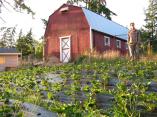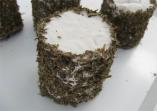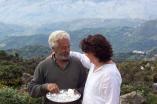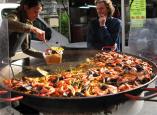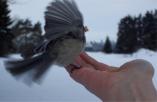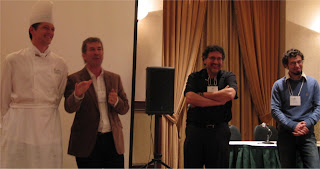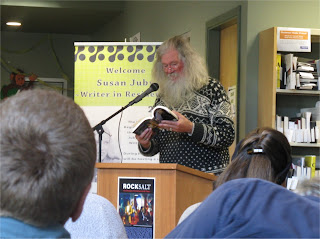There’s a new bakery/pizzeria in my neighbourhood, which pleases me greatly as this part of Victoria has been a bit of a quality food desert. B-red Organic Bakery Patisserie & Pizzeria is a tiny place on a busy road, with two slightly dangerous parking spots (you must back out into aforementioned busy road when you leave) and a tiny counter for watching the world go by. Making efficient use of space and time, they bake by day (open for sales 10-3) and pizza by night (5-11 most nights, till 1am Fri & Sat), taking their weekends on Mondays and Tuesdays. Here’s a view of their whole wheat sourdough, called Miche, which was extremely good, with lots of flavour and crunch:
Lots going on right now. I must hurry if I want to catch the Rice is Life show at the art gallery.
GG nominee (announcement tomorrow) and excellent literary chap Fred Stenson is reading in Sidney on November 21st at the Red Brick Cafe, together with local treasure Rachel Wyatt, beloved of many alumni of the Banff Writing Studio.
Next Thursday November 27th there’s a one-day conference in Sidney that aims “to put the farm back in farmland”. The Farmland Conference: Our Foodlands, Our Future runs from 9.00 am till 6.30 pm and features plenary speakers farmer/agrologist Niels Holbek and MLA and agriculture critic Corky Evans.
Saturday 29th I’m tempted by the CRD Parks Magnificent Mushrooms outing. Or I could stay home and study all the ones that are growing in my lawn..?
Weirdness on the water: surprised to see this sight on Sunday morning. A passing dog-walker told me it was only foam from the reversing falls under Tillicum Bridge, but I’ve never seen this on the Gorge in the six years I’ve been looking at it. Something funny going on…
